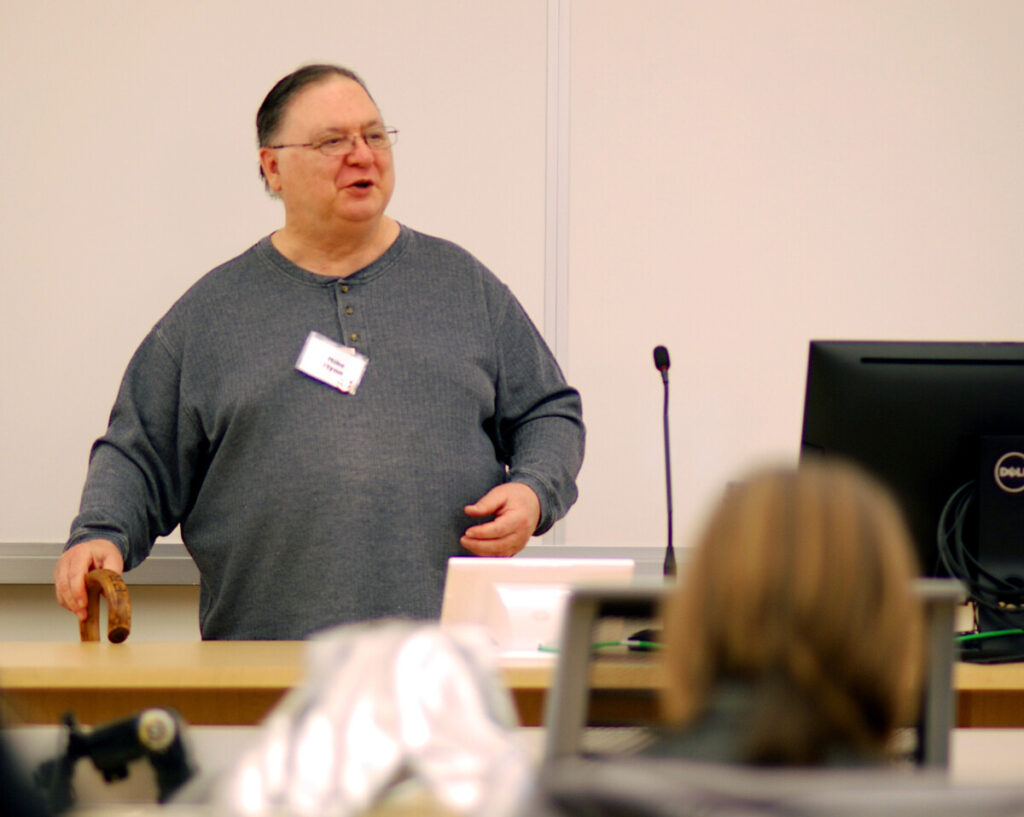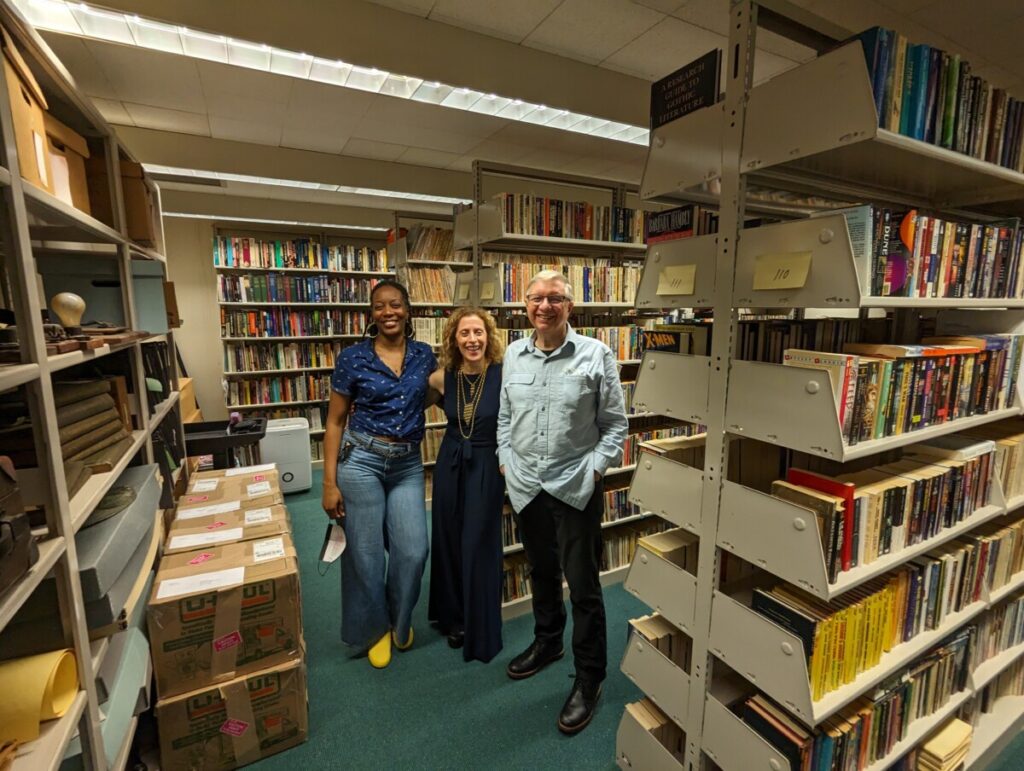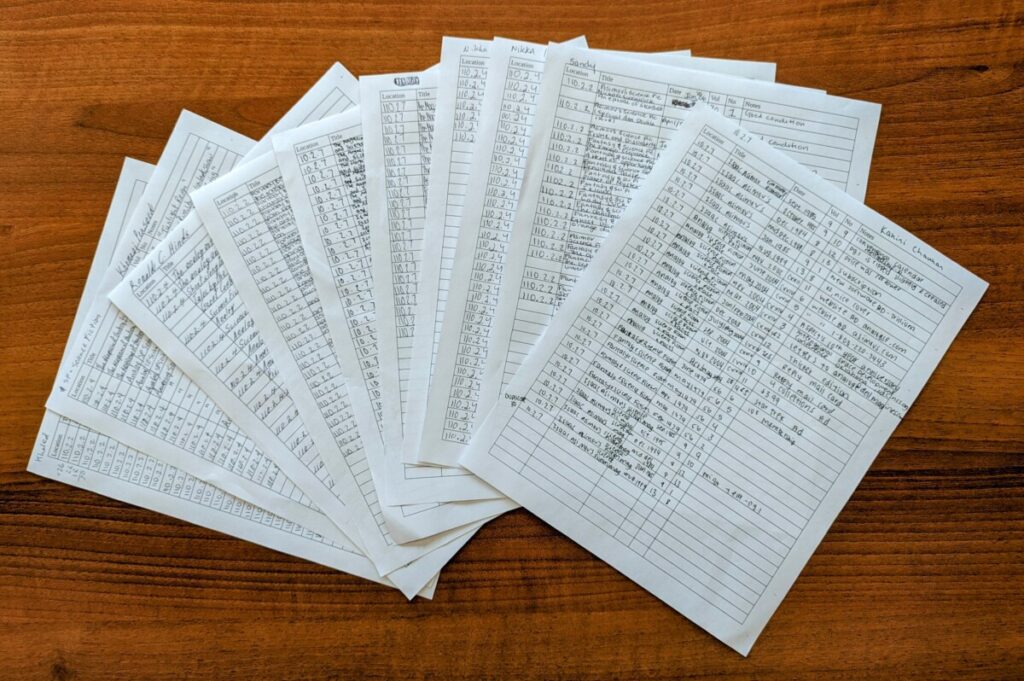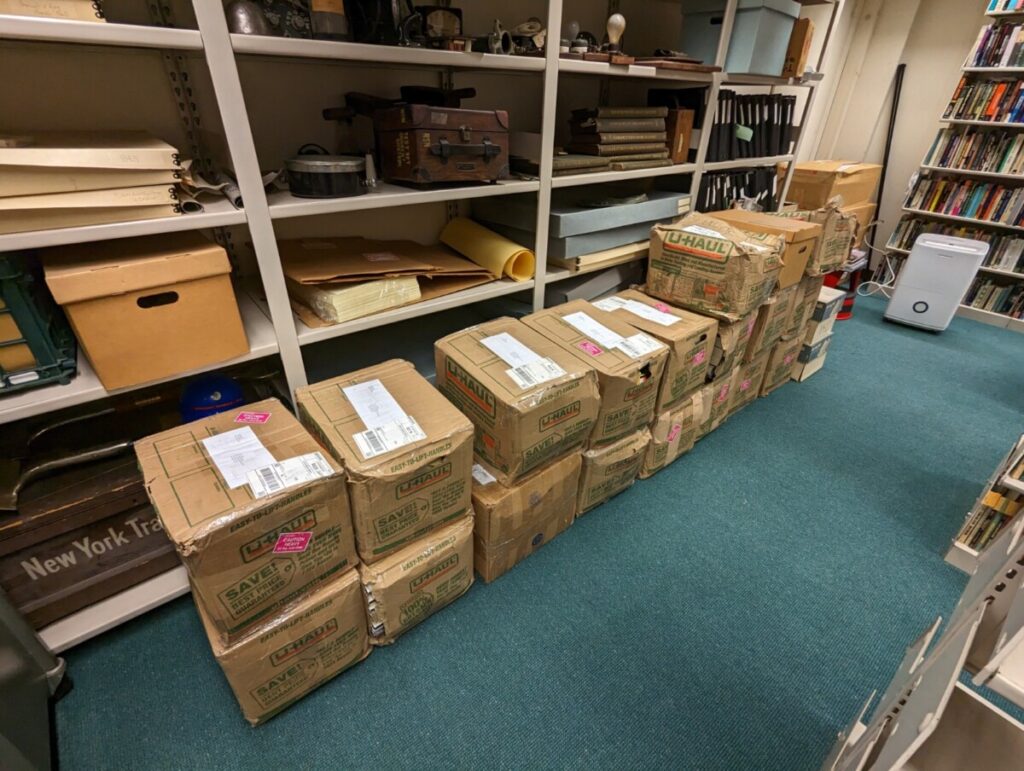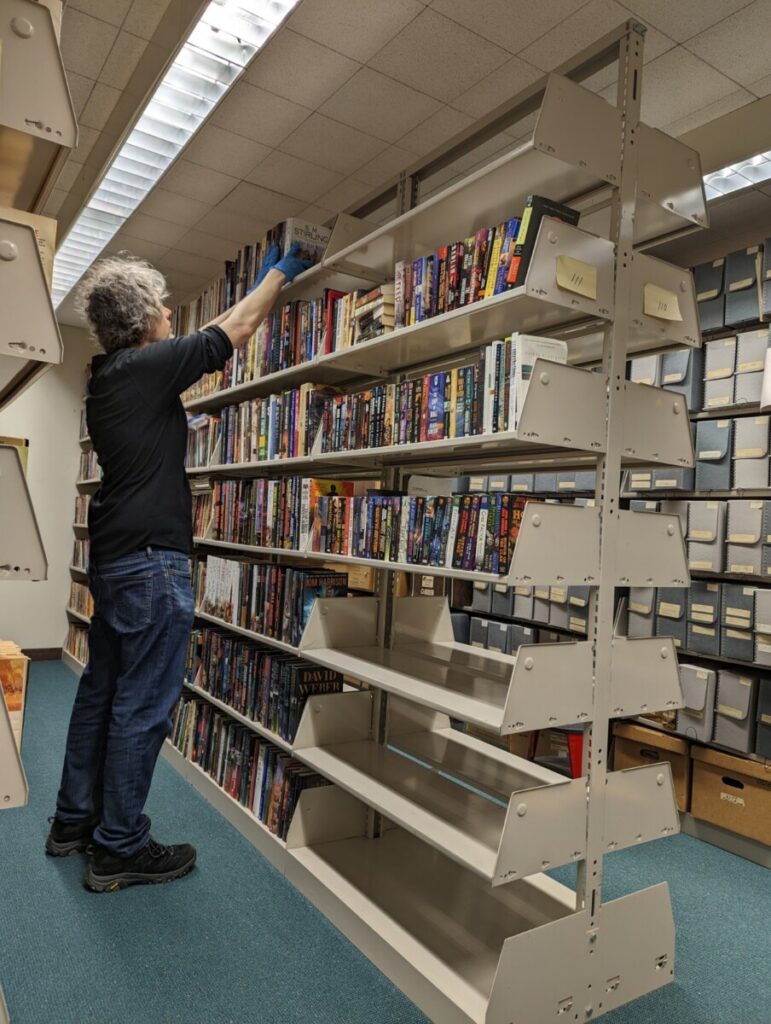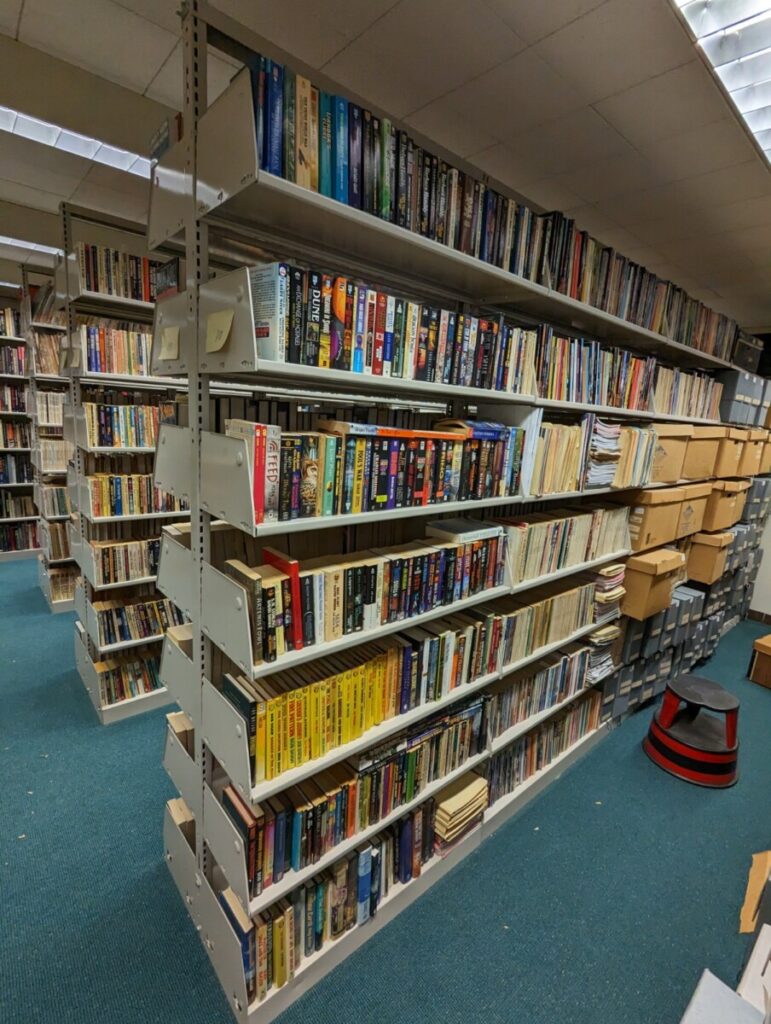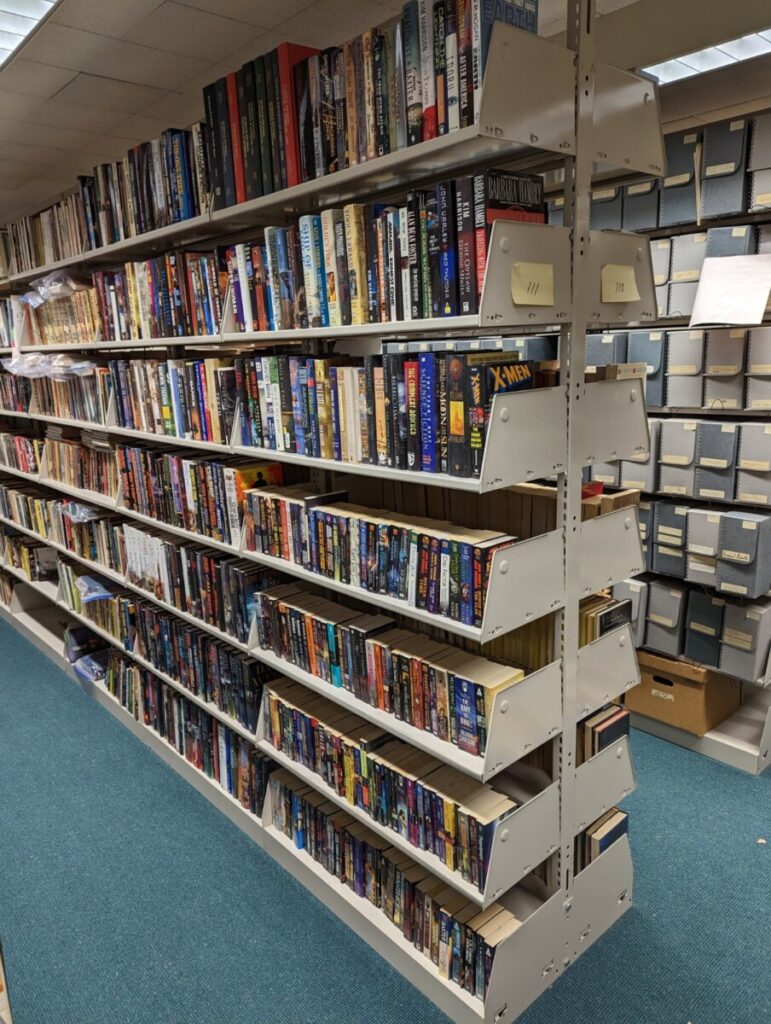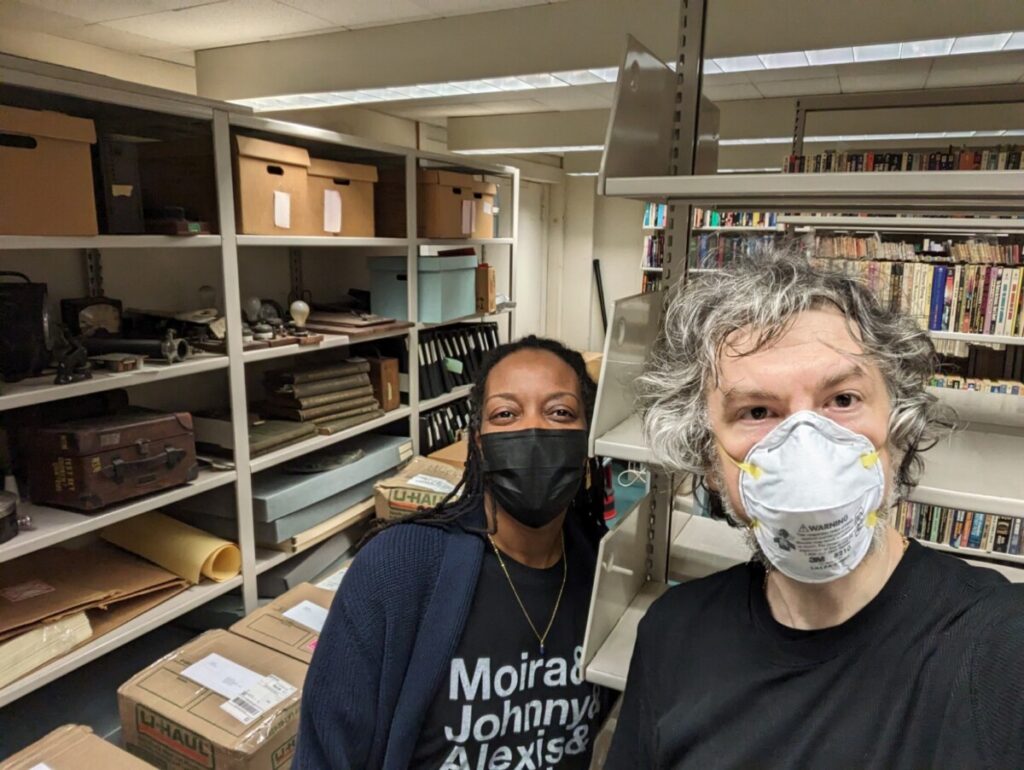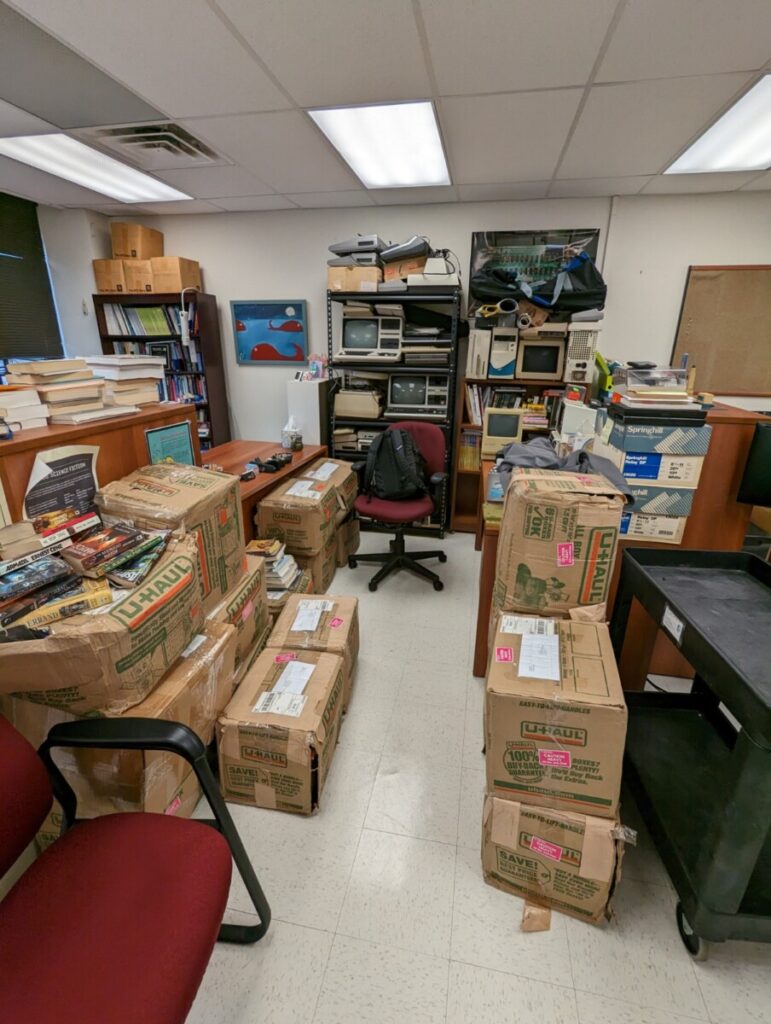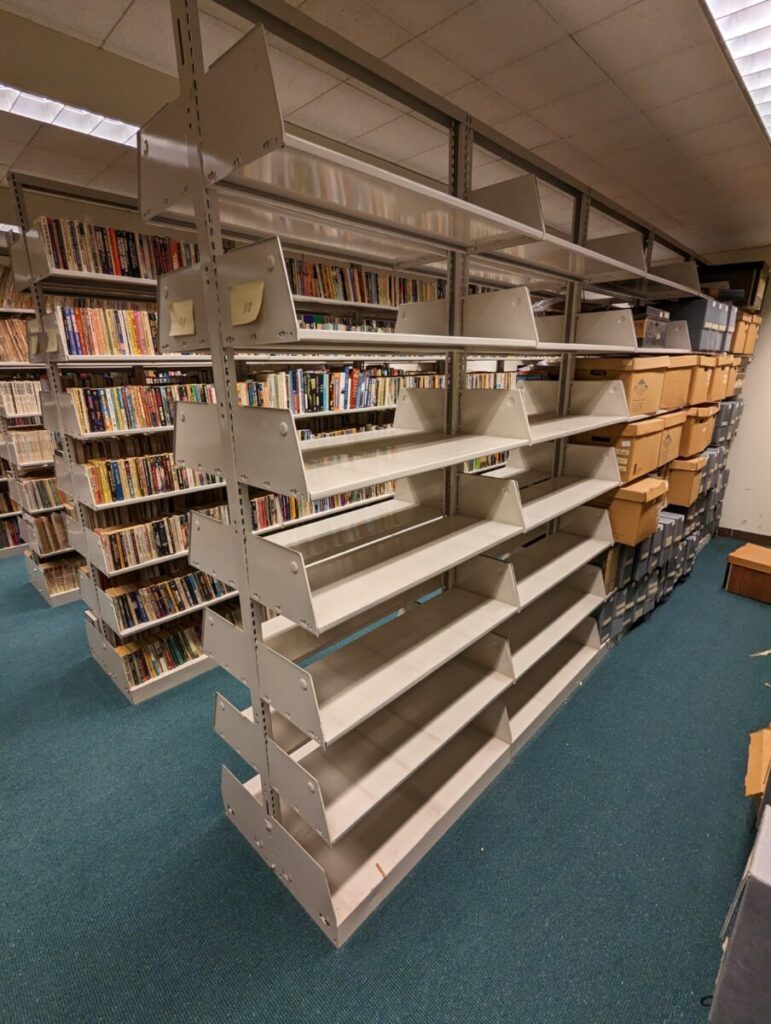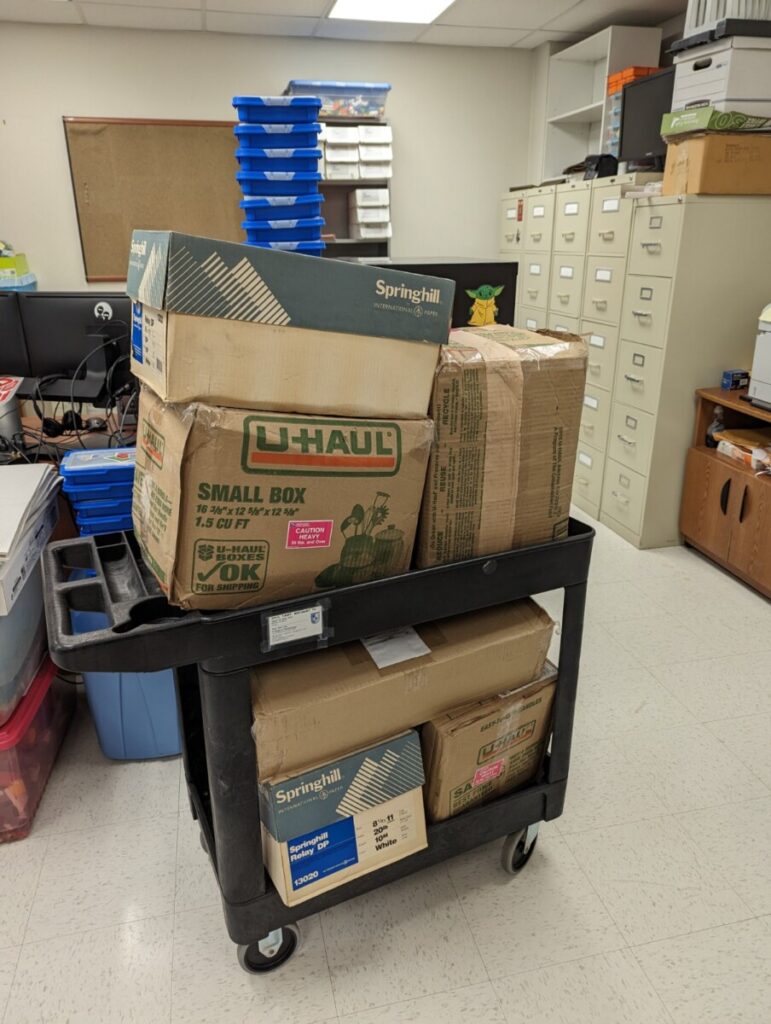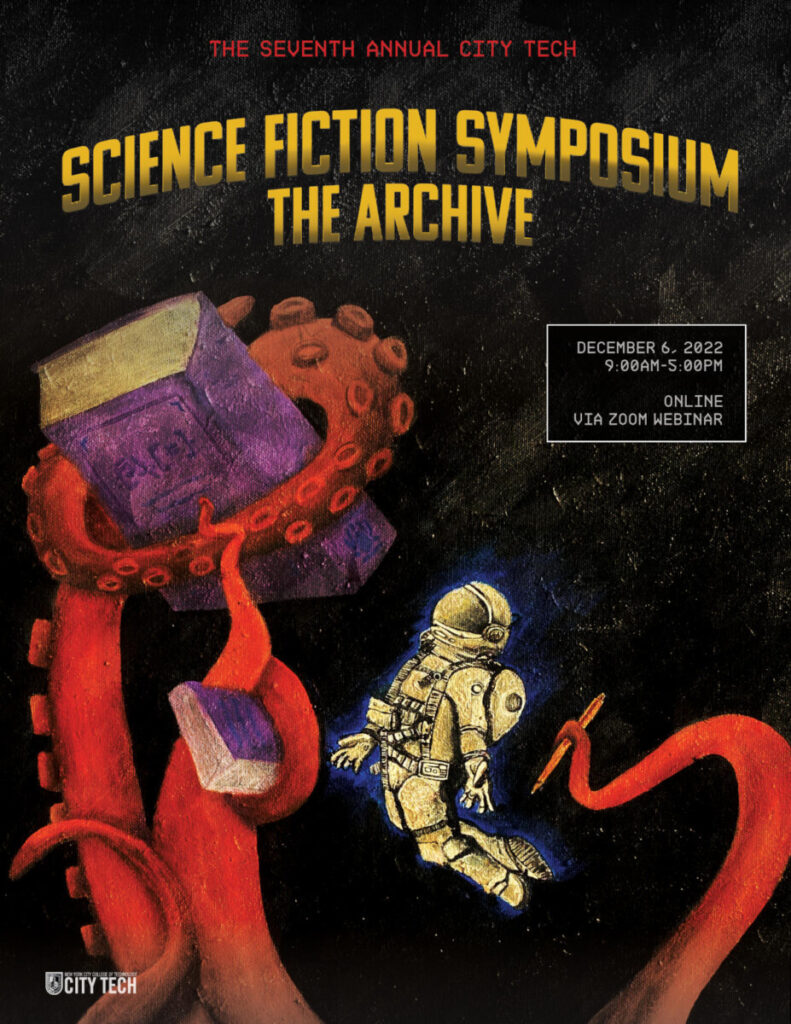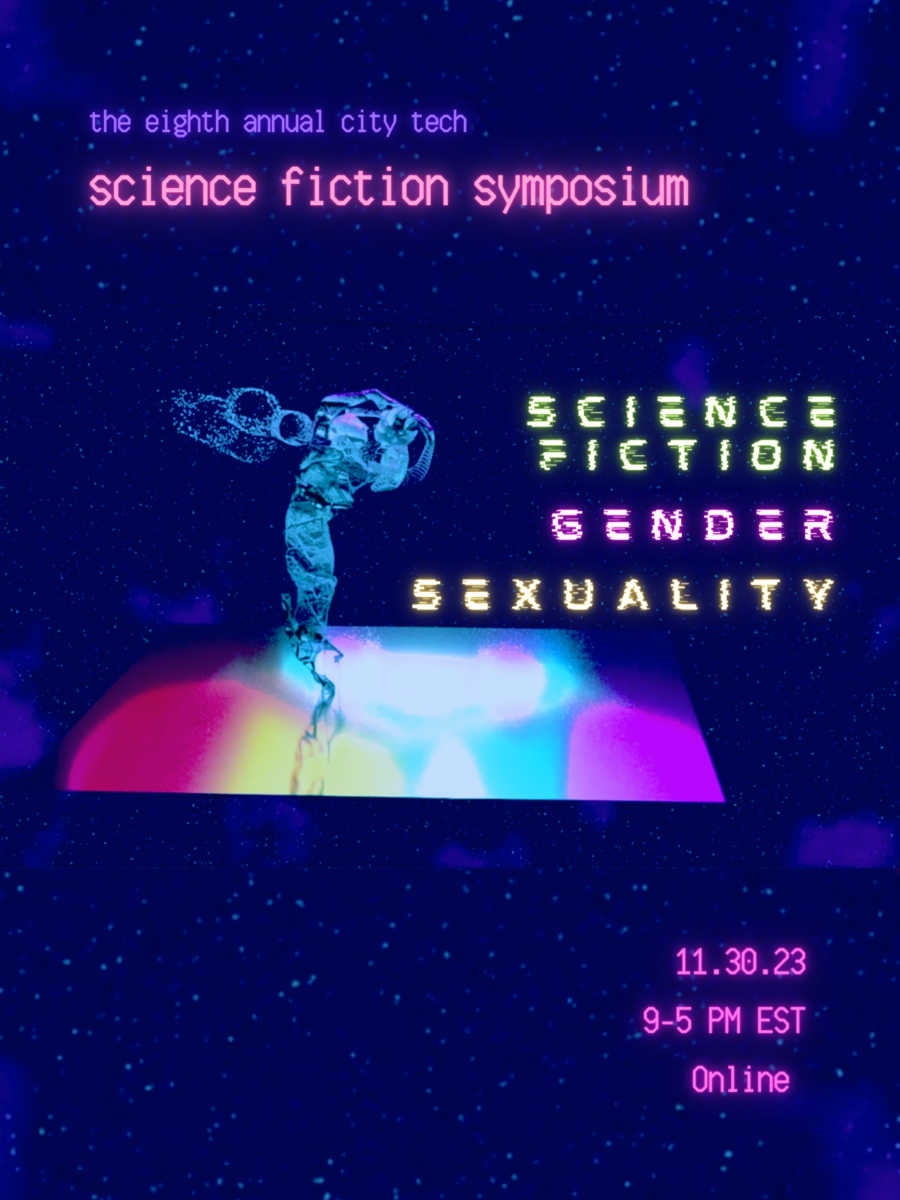
Poster designed by Lucas Kwong.
Registration and Viewing
The Program and Registration for the 8th Annual City Tech Science Fiction Symposium on Science Fiction, Gender, and Sexuality will be held on Thursday, November 30, 2023 from 9:00am-5:00pm EST (GMT/UTC -5 hours) online via Zoom Webinar.
To participate in this free event, attendees will need to do these two things: (1) Signup for a free Zoom account here (if you don’t already have one), and (2) Register here to receive access instructions to the Zoom Webinar. Participants may register any time before or during the event!
For those who would like to watch the event without registering, you can join the YouTube Livestream here (click on the top-most video labeled “Live”).
Program
9:00am-9:15am
Opening
Wanett Clyde
Justin Vazquez-Poritz
9:15am-10:05am:
Paper Session 1
Moderator -Kel Karpinski
Cynthia Lam – Lost in Translation: The Inevitable Gendered Language in Ursula K. Le Guin’s The Left Hand of Darkness
Chris Leslie – The Gender Performances of L. Taylor Hansen
Sinchan Chatterjee – “Science Fiction and Postgendered Maternity: A Care-ethics based reading of Ursula K. Le Guin’s “The Left Hand of Darkness.”
Marleen S. Barr – Naomi Alderman’s The Power as Jewish Feminist Power Fantasy
10:05am-10:10am
Break
10:10am-11:00am:
Paper session 2
Moderator – Lucas Kwong
Alicia Matheny Beeson – Considering the Intersections of Class and Gender through Utopia
Shrishti Chakraborti – Transforming Fiction: Cultural Pitfalls of Patriarchy and Gender Subjectivity in Sowmya Rajendran’s Dystopia, The Lesson
Ben DeVries – “Shit Hits the Fan . . . When? Gendered Futures, Violence, and the Composition of Catastrophe in Parable of the Sower and Patriots”
11:00am-11:05am
Break
11:05am-11:55am
Panel Discussion
“Notes from The Sci Fi Lab@Georgia Tech: Sexuality and Gender in Early Black and White Speculative Fiction”
Dr. Lisa Yaszek – Moderator
Val Barnhart
Max Anthony Mateer
Diya Patel
Killian Vetter
11:55am-12:00pm
Break
12-1:15pm:
Analog Writers Panel and the Analog Emerging Black Voices Award
Introduction -Jill Belli
Emily Hockaday – Moderator
Phoebe Barton
Chana Kohl
Marie Vibbert
Trevor Quachri and Emily Hockaday – Award Presentation
1:15-1:20pm:
Break
1:20-2:10pm:
Paper session 3
Moderator -Vivian Papp
Josie Garza Medina – Gender Performance and Nascent Dystopia in CD Projekt Red’s Cyberpunk 2077
Kimberly Jenerette – Embodied Sex (n.) and Embodied Sex (v.): Reexamining Embodied Sexuality in Mass Effect in 2023
Jess Tucker – From Red Sonya to Red Sonja: The Sexualization of a Fantasy Feminist?
Hale Lam – Ghost and the machine – techno spectral femininity in Ling Ma’s Severance
2:10-2:15pm:
Break
2:15-3:05pm:
Paper Session 4
Moderator -Leigh Gold
Omotoyosi Odukomaiya – Identity, Otherness and Alterity in Nnedi Okorafor’s Lagoon and Tade Thompson’s Rosewater
Jacob Adler – Speculative Fiction and the “Illusory Woman”
Jo Ann Oravec – You May Now Kiss the Robot: Human-Robot Marriages in Science Fiction Literature and Movies
3:05-3:10pm:
Break
3:10-4:00pm:
Panel Session 2
Introduction -Jill Belli
Visions and Universes: The Past, Present, and Future of Gender and Sexuality in the Science Fiction Novel
Lavelle Porter – Moderator
Julia Aiello
Elizabeth Lodvikov
Nathalie Segarra Valle
4:00-4:05pm:
Break
4:05pm-5:00pm:
Keynote: Ytasha Womack “Afrofuturism: Time/Space Relations in Valuing Humanity”
Introduction and Moderator -Wanett Clyde
Participants
Jacob Adler has served as the Metadata/Cataloging Librarian at Bronx Community College Library since 2017. He has been a presenter at the City Tech Science Fiction Symposium in 2020, 2021, and 2022, and more recently has become involved in lecturing on and creating educational materials about generative systems such as ChatGPT, Bard, and Elicit. He is also a contributor to the upcoming science-fiction feminist studies publication Space, the Feminist Frontier: Essays on Sex and Gender in Star Trek, scheduled for publication by McFarland in November 2023. His interests include media history, tabletop role-playing games, and fiction-writing.
Julia Aiello is a Junior at Macaulay Honors College, CUNY and Baruch College, CUNY. She is pursuing a Biology degree with minors in New York City Studies and English.
Valerie Barnhart is an LMC major undergraduate at Georgia Tech. She began working in the Science Fiction lab under Dr. Yaszek in Fall of 2022. Since then, she has been working on both creative writing and archival research projects. She is currently assisting Lab endeavors to recover and review early 20th century speculative fiction works by Black authors.
Marleen S. Barr is known for her pioneering work in feminist science fiction scholarship and has recently retired from teaching English at the City University of New York. She has won the Science Fiction Research Association Award for Lifetime Contribution to Science Fiction Scholarship. Barr is the author of Alien to Femininity: Speculative Fiction and Feminist Theory, Lost in Space: Probing Feminist Science Fiction and Beyond, Feminist Fabulation: Space/Postmodern Fiction, and Genre Fission: A New Discourse Practice for Cultural Studies. Barr has edited many science fiction critical anthologies and co-edited the science fiction issue of PMLA. She is the author of the novels Oy Pioneer! and Oy Feminist Planets: A Fake Memoir. Her When Trump Changed: The Feminist Science Fiction Justice League Quashes the Orange Outrage Pussy Grabber is the first single authored Trump short story collection. It is followed by This Former President: Science Fiction as Retrospective Retrorocket Jettisons Trumpism.
Phoebe Barton is a queer trans science fiction writer. Her short fiction has appeared in Analog, Lightspeed, and Kaleidotrope, and her story “The Mathematics of Fairyland” won the Aurora Award for Best Short Story in 2022. She lives with her family and many books in Hamilton, Ontario.
Alicia Matheny Beeson (she/her) is an associate professor of English at West Virginia University of Parkersburg. She earned a master’s degree in English and a certificate in women’s studies at Kansas State University then a PhD at the University of North Carolina at Greensboro. Her scholarship focuses on American Literature, utopian and dystopian literature, and women writers, especially from the Progressive Era. Her work has been published most recently in edited collections such as Wakandan Civitas and its Panthering Futurity and Navigating Women’s Friendships in American Literature.
Jill Belli is Associate Professor of English at New York City College of Technology, CUNY, where she happily teaches science fiction and utopian studies often. She’s working on long-standing projects on well-being & happiness in education and writing & revising in speculative fiction. Newer interests include nature writing, healing & illness, tarot & astrology as storytelling / intuitive literacy, and grief. Learn more about Jill and her interdisciplinary research and teaching: jillbelli.org.
Shrishti Chakraborti recently graduated M Phil Scholar from the Department of English, University of Delhi. They completed their graduate (2016) as well as post-graduate (2018) from Ramjas College, University of Delhi. Their Mphil dissertation was on 21st Century Indian speculative fiction. Apart from research on the SF genre, their other areas of research include- food discourse, cultural studies, Dalit fiction, short story narratives. Shrishti is a research scholar, full time educator at The Heritage School, Rohini, where they teach English literature to high school learners.
Sinchan Chatterjee works as a Teaching Assistant of English Literature in the department of Humanities and Social Sciences at IIT Bombay. As a Doctoral UGC-NET Junior Research Fellow, Sinchan studies autistic autobiographies using interdisciplinary methodological tools from autobiography studies, disability studies, phenomenology, queer theory, and discourse analysis. Sinchan completed his Graduation from St. Xavier’s College and his Masters in English Literature from Jadavpur University. His academic and creative works have been published by the State University of New York Press, Trinity Review, Setu Magazine (Pittsburgh), Muse India, Writers Workshop, WordIt Bombay. Sinchan’s areas of academic interest include cultural studies, disability studies, and posthumanism.
Wanett Clyde is the Collections Management Librarian at CUNY’s New York City College of Technology, where in addition to managing the library’s collection she oversees the university archives. Her research seeks to explore the intersection of Black history and fashion history, drawing out under credited African-American contributors, their critical innovations and accomplishments, and other meaningful connections in the overlapping research spheres
Ben DeVries (he/him) is a Ph.D candidate in English at the University of Illinois at Urbana-Champaign. A scholar of twentieth- and twenty-first-century US literature, he specializes in apocalyptic and postapocalyptic stories since the 1990s. His dissertation looks to defamiliarize familiar apocalyptic tropes—world-ending disasters, pandemic cures, last men—by recentering them as aesthetic objects. For instance, how do stories compose an apocalyptic disaster like a market collapse or an asteroid blistering toward earth, such that it comes into narratively compelling existence? And with that, what sorts of fantasies, keyed to a historically specific moment in the development of global capital, must be in place for that aesthetic process to unfold?
Leigh Dara Gold is a Doctoral Lecturer in the English Department at City Tech. She currently teaches composition, fiction, drama, poetry, and several other literature classes. Her doctoral work, completed at NYU in 2011, explored mourning in the work of Else Lasker-Schüler using several theoretical approaches, among them feminist, trauma, and poetic theories. Since then she has deepened her focus on interdisciplinary work such as writing about Ursula K Le Guin, Mary Shelley and Le Guin’s intersections, Eastern philosophies and ethics in Le Guin’s work, trauma in women writers of science fiction, including Octavia Butler, and the role of the body in poetry. Leigh is currently working on an essay about Judith Merril for an upcoming anthology on Jewish women sci fi writers edited by Marleen S Barr.
Emily Hockaday is the managing editor and poetry editor for Asimov’s Science Fiction and Analog Science Fiction and Fact. Her first full-length poetry collection, Naming the Ghost, will be out in November 2022 with Cornerstone Press. You can find her online at www.emilyhockaday.com or @E_Hockaday.
Kimberly Jenerette is a Ph.D. student working out of Texas Tech University. She is a queer and trans scholar specializing in digital embodiment and identity. Her principal concern is on the complicated nature of existing through digital technology and how queer identities present themselves within virtual contexts. She has a background in rhetorical studies and works to examine both real world digital technologies as well as fictionalized imaginings of such technology through that lens of rhetorical framing. Most recently, she has also begun working on applying frameworks of Actor-Network Theory and Object-Oriented Ontology to the lens of AI writing to better understand the new rhetorical situation these technologies present.
Kel R. Karpinski is a Librarian and Assistant Professor at the New York City College of Technology, CUNY. Their research focuses on mid-century queer films and novels as they relate to sailors and hustlers in Times Square and how these texts map queer desire onto the city. Kel is also a zine maker and a NY Queer Zine Fair organizer.
Chana Kohl works in Jerusalem in clinical trials and research, writing speculative fiction in her spare time. Her stories have appeared in Luna Station Quarterly, Stupefying Stories and Metastellar. As recipient of the 2022 Analog Emerging Black Voices Award, her professional debut will appear in Analog Science Fiction and Fact next year. For more updates, please visit her blog: www.chanakohl.wordpress.com
Lucas Kwong is a writer, musician, and associate professor of English at New York City College of Technology. He’s written at eschatontwist.substack.com, Institute for Christian Socialism’s Bias Magazine, Public Books, Journal of Narrative Theory, and Victorian Literature and Culture. His podcast series, Monster In The Mirror, is a spinoff of Straight White American Jesus. His music can be found at brotherkmusic.com.
Cynthia Wing Nga Lam is a second-year PhD in the Department of Gender, Sexuality, and Women’s Studies at Western University. Her doctoral research investigates the potential coalition between ecofeminism and queer ecologies. She received her M.Phil. in Cultural Studies at the Chinese University of Hong Kong.
Hale Lam is an English PhD Student at The George Washington University. Their research explores gender, Asian-ness, aesthetics, and objects in Asian American literature and culture. They have an M.A. in Liberal Studies from the CUNY Graduate Center where they studied English literature and fashion.
Christopher Leslie (he/him) is a lecturer in the Faculty of Liberal Arts at the Prince of Songkla University in Hat Yai, Thailand. His book, From Hyperspace to Hypertext: Masculinity, Globalization, and Their Discontents, was recently published by Palgrave. His research focuses on the intersections among science, technology, and society. A two-time winner of a Fulbright Award, Dr. Leslie has taught at the City University of New York, New York University, Universität Potsdam (Germany), and the South China University of Technology in Guangzhou. A two-time recipient of a Fulbright award, he has also taught at John Jay College, Hunter College, the University of Potsdam (Germany), and New York University Tandon School of Engineering. Dr. Leslie was born and raised in western New York State, but he took his M.A. and Ph.D. from the City University of New York Graduate Center in New York City.
Elizabeth Lodvikov is a Junior at Macaulay Honors College, CUNY and Brooklyn College, CUNY. She is pursuing a Multimedia Computing degree.
Max Mateer is a Nuclear Engineering major and Science Fiction Studies Minor at Georgia Tech. They’ve been working under Dr. Yaszek for over a year researching minority science fiction, particularly the work of pioneering genre writer Frances Stevens and the African American authors who published in the Illustrated Feature Section included in many early 20th century Black newspapers. They have a particular passion for cyberpunk and post-apocalyptic science fiction.
Josie Garza Medina (she/her) is a graduate teaching assistant at Texas A&M University – Kingsville. She is working on a Master’s thesis on modes of gender performance and representation in the video game Cyberpunk 2077 (CD Projekt Red, 2020), and is also a poetry editor at the university literature journal, The Javelina Express. She has recently presented “Apocalyptica Britannica: Themes of Critique, Nihilism, and Dystopia in Late 1970s Angular Post-Punk” at the Summer 2023 Punk Scholars Network conference in Chicago, Illinois, and “All in the Hispanic Queer Family: Disability and Sexuality in Cherrie Moraga’s Heroes and Saints” at the 2023 Northeast Modern Language Association convention in Niagara Falls, New York.
Omotoyosi Odukomaiya, a recent graduate of Southern Illinois University, Carbondale, successfully completed her Ph.D. in English. Currently, Omotoyosi is an Assistant Professor of English at Hope College, specializing in African And African American science fiction. Her current research focuses on the intersections between Afrofuturist and Africanfuturist narratives. In particular, she aims to establish Pan-Africanfuturism as a distinctive genre capable of mapping out these intersections.
Jo Ann Oravec (MA, MS, MBA, PhD) is a full professor in the University of Wisconsin-Whitewater (Department of Information Technology and Supply Chain Management) and the Holtz Center for Science & Technology Studies, UW-Madison. Her books include Good Robot, Bad Robot: Dark and Creepy Sides of Robotics, AI, and Autonomous Vehicles (Springer Nature) and Virtual Individuals, Virtual Groups (Cambridge University Press).
Vivian Zuluaga Papp is a Doctoral Lecturer in the English Department here at City Tech. She has a BA in English from Columbia University, an MA in British and American Literature from Hunter College, and her Ph.D. is in Eighteenth-Century British Literature from Fordham University. Previously, she taught classes in Satire, Women in Science Fiction, Afrofuturism, and Imaginary Travel Narratives while a Postdoctoral Teaching Fellow at Fordham University. Her research interest is in the field of visual epistemology in seventeenth-century scientific texts and early forms of the novel. She is the author of a short science fiction story “Catbot’s in the Cradle,” which was published in Behind the Yellow Wallpaper: New Tales of Madness, and has a chapter coming out in a Science Studies anthology on real and imagined visual manifestations of the “unseeable” in Daniel Defoe’s A Journal of the Plague Year and Robert Boyle’s New Experiments Physico-Mechanicall, Touching the Spring of the Air and Its Effects.
Diya Patel is an undergraduate at Georgia Tech majoring in Aerospace Engineering with a minor in Science Fiction Studies. She has worked under Dr. Lisa Yaszek in the Sci-Fi Lab for two semesters rediscovering “Radium Age” speculative fiction published by women between 1900 and 1930s and researching pioneering fantasy artist Margaret Brundage.
Lavelle Porter is a Distinguished Lecturer at Macaulay Honors College, CUNY. His research interests include African-American literature, higher education, science fiction, gender and sexuality, and the history of New York City. He earned a B.A. in history from Morehouse College, and a Ph.D. in English from the CUNY Graduate Center. He is the author of The Blackademic Life: Academic Fiction, Higher Education, and the Black Intellectual (Northwestern University Press, 2019). He recently published an introduction to the Centipede Press edition of Samuel R. Delany’s Nova, and is currently working on two different book projects on Delany’s writing.
Trevor Quachri, who took the reins of Analog Science Fiction and Fact as editor in 2012, started off as an editorial assistant in 1999 and worked his way up the ladder at Analog and Asimov’s Science Fiction, under Stanley Schmidt, Sheila Williams, and Gardner Dozois, respectively. On top of that, he’s also been a Broadway stagehand, collected data for museums, and executive produced a science fiction pilot for a basic cable channel. He lives in New Jersey with his fiancée, daughter, and way, way too many comic books.
Sean Scanlan is an Associate Professor of English at New York City College of Technology—CUNY where he specializes in writing technologies and global literature. He published “Global Homesickness in William Gibson’s Blue Ant Trilogy,” for the collection The City after 9/11: Literature, Film, Television (2016), and he reviewed the collection William Gibson and the Future of Contemporary Culture (2021) for American Literary History. He is the founder and editor of NANO: New American Notes Online.
Jess Tucker is the University Archivist for the University of North Texas, a school with a strong reputation for the arts, including music, visual, and literary. Those strengths are reflected in the university’s speculative fiction archival holdings, including records related to Robert E. Howard, former university professor and science fiction author Warren Norwood, a first edition of The Hobbit, and the papers of Victoria Lisi (who has created her own interpretation of Red Sonja).
Nathalie Segarra Valle is a Senior at Macaulay Honors College, CUNY and Brooklyn College, CUNY. She is pursuing a Psychology degree with a minor in Child and Youth Studies.
Justin Vazquez-Poritz is the Dean of the School of Arts and Sciences at New York College of Technology, CUNY.
Killian Vetter is an undergraduate at Georgia Tech majoring Computer Science and Mathematics with a minor in Science Fiction Studies. He has worked under Dr. Lisa Yaszek in the Sci-Fi Lab for the past year rediscovering speculative fiction published in Black newspapers during the first half of the 20th century.
Marie Vibbert, a Hugo and Nebula nominated author, has written over 90 short stories – 14 in Analog! as well as three novels, dozens of poems, and a few comics and video games. She played women’s professional football for five years and first appeared on Wikipedia for her research into historical hats. By day she is a computer programmer in Cleveland, Ohio.
Ytasha L. Womack is a critically acclaimed author, filmmaker, dancer, independent scholar, and champion of humanity and the imagination. Her book Afrofuturism: The World of Black Sci Fi & Fantasy Culture (2013) is the leading primer on the exciting subject which bridges science fiction, futurisms, and culture. The book is a 2014 Locus Awards Non Fiction Finalist. Ytasha is also author of the book “Black Panther: A Cultural Exploration” which debuted Oct 2023.
Lisa Yaszek is Regents’ Professor of Science Fiction Studies at Georgia Tech, where she explores science fiction as a global language crossing centuries, continents, and cultures. Her books include Galactic Suburbia: Recovering Women’s Science Fiction (2008); Sisters of Tomorrow: The First Women of Science Fiction (2016); and The Future is Female! Classic Science Fiction Stories by Women series (2018-present). Yaszek’s ideas about science fiction as a window to cultural history have been featured in venues including The Washington Post, Food and Wine Magazine, and USA Today, and she has been an expert commentator for CBS Sunday Morning, the BBC4, Turner Classic Movies, and the AMC miniseries James Cameron’s Story of Science Fiction. A past president of the Science Fiction Research Association, Yaszek currently serves as a juror for the Eugie Foster and Philip K. Dick Speculative Fiction Awards.
Organizers
Jill Belli, Wanett Clyde, Leigh Gold, Kel Karpinski, Lucas Kwong, Vivian Papp and Sean Scanlan
 Participation in this Pride event is made possible due to generous funding from the New York City Council Lesbian, Gay, Bisexual, Transgender, Queer, Intersex, and Asexual Caucus and the Office of the Mayor, and supported by The LaGuardia and Wagner Archives
Participation in this Pride event is made possible due to generous funding from the New York City Council Lesbian, Gay, Bisexual, Transgender, Queer, Intersex, and Asexual Caucus and the Office of the Mayor, and supported by The LaGuardia and Wagner Archives
 Poster designed by Lucas Kwong.
Poster designed by Lucas Kwong. Participation in this Pride event is made possible due to generous funding from the New York City Council Lesbian, Gay, Bisexual, Transgender, Queer, Intersex, and Asexual Caucus and the Office of the Mayor, and supported by The LaGuardia and Wagner Archives
Participation in this Pride event is made possible due to generous funding from the New York City Council Lesbian, Gay, Bisexual, Transgender, Queer, Intersex, and Asexual Caucus and the Office of the Mayor, and supported by The LaGuardia and Wagner Archives
